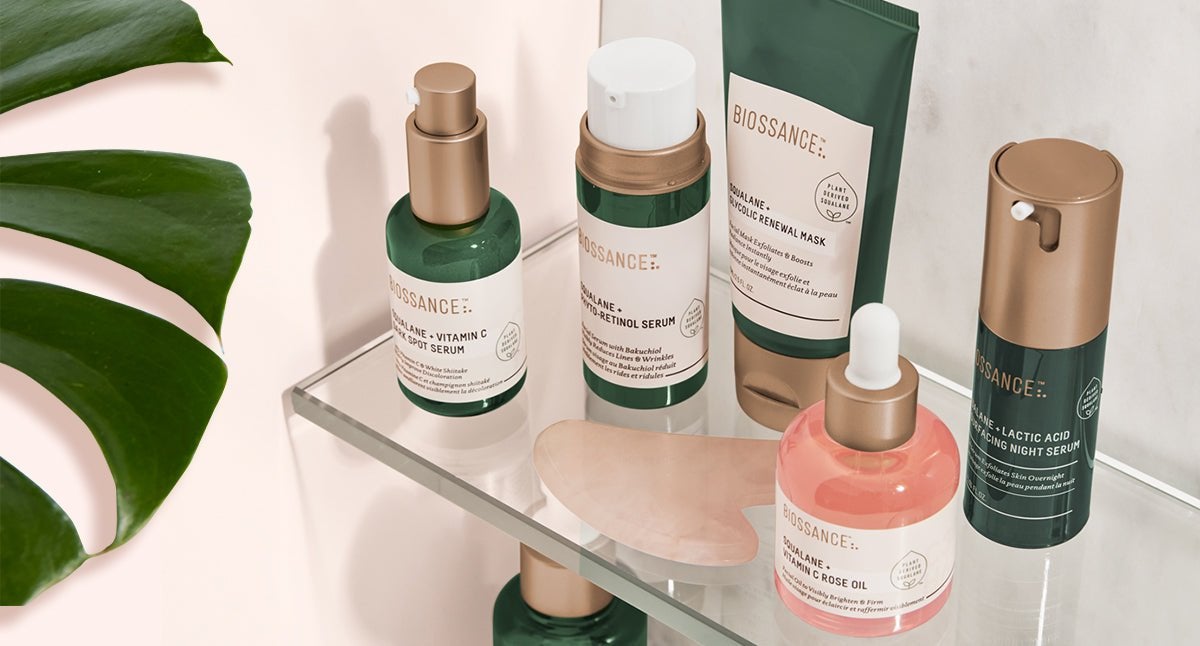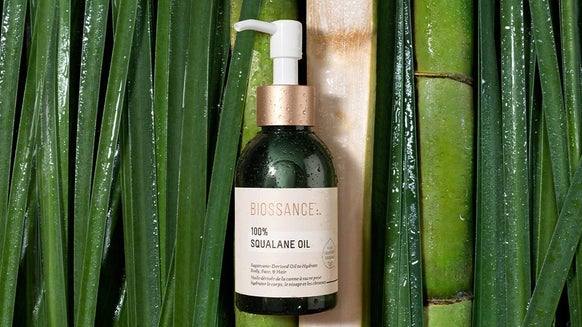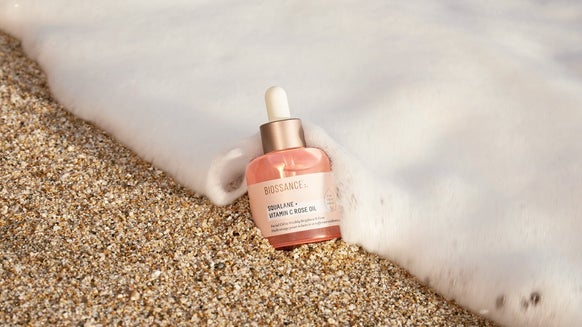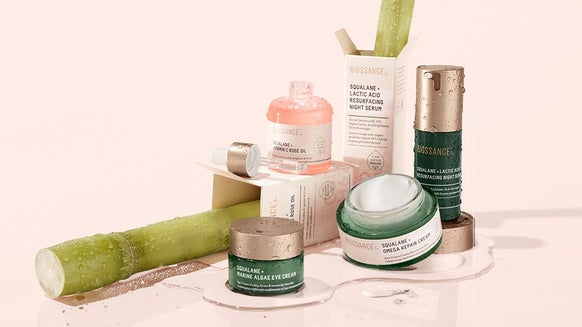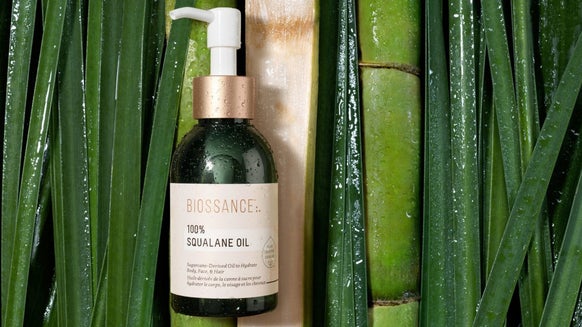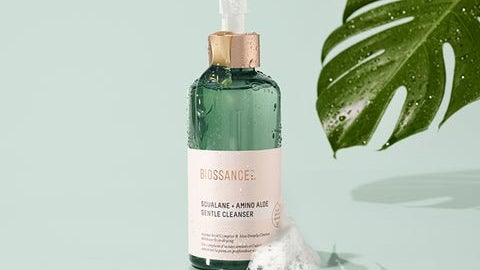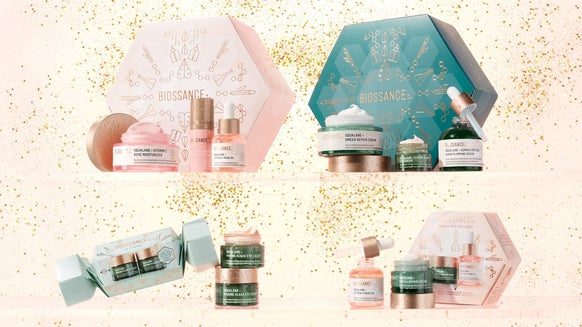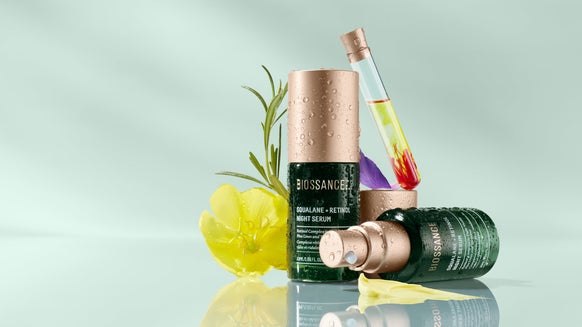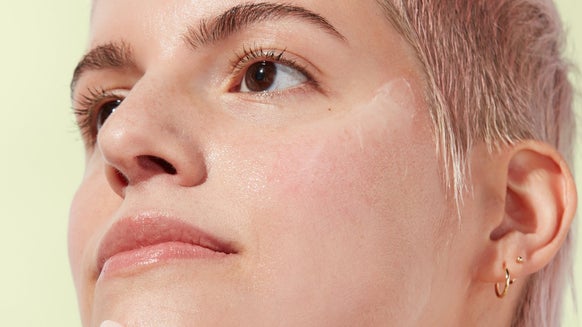If your bathroom cabinet is closer to a time capsule than a functional piece of storage for your everyday beauty products, then you’re not alone. We all have those cosmetics we can’t bear to throw away. Whether it’s the half-used serum you forgot about, or the lipstick that’s the perfect shade of red for the holidays.
We’re all about reducing waste, but here’s the thing: all cosmetics expire, even if there’s no expiration date printed on the label. Read on for a complete guide to cosmetic expiration, including when to toss expired skincare and makeup, and how to figure out whether your beauty products are still safe to use.Why You Should Never Use Expired Cosmetics
We’ll say it again: all beauty products eventually go bad. When this happens, bacteria and mold proliferate, and active ingredients break down, which can cause them to become less effective or even irritating.Using expired cosmetics can compromise your skin’s moisture barrier by introducing chemical and biological irritants to the skin. This can lead to acne and irritation, and a lot of wasted time. After all, why bother with a skincare routine if your products are no longer working….or worse, harming your skin?How To Know If You’re Using Expired Skincare
Only beauty products that are regulated as over-the-counter drugs (such as sunscreen and acne products) have printed expiration dates. This can make it difficult to figure out whether your cosmetics are past their prime. While you should always defer to printed expiration dates when available, period after opening (PAO) is the only way to discern whether you should keep or toss cosmetics when no date is printed. PAO refers to the amount of time a product stays stable and safe for use after it’s been opened.How Long Is A Product Good For After I Open It?
We print the PAO right on the label of all our products. (Except for sunscreen, which has an expiration date.) Look for it in the bottom right corner of our labels inside the universal PAO symbol, which looks like an open jar. The number inside tells you how many months the product can remain open before its ingredients are compromised and you need to throw it away. We recommend using a Sharpie to write the date of opening on the label so you don’t risk using expired skincare.4 Signs Your Cosmetics Are Past Their Prime
If you didn’t write down the date of opening or have purchased from a different brand that doesn’t share a PAO, here are 5 signs you should toss your cosmetics:- Changes in product color
- Changes in product smell
- The product has separated or become lumpy
- The product is dry or flaking
Sometimes, though, products deteriorate without showing any of the above changes. That’s why it’s also important to follow these rules of thumb for safe use of common beauty products.Rules Of Thumb For Common Beauty Product Expiration
- Cleansers are generally good for a year
- Moisturizers and serums are usually good for six months to a year
- AHA and BHA exfoliants are good for a year
- Toss your mascara after three months of use
- Eyeliner is good for three to six months after you open it
- Lipstick and liner lasts for two to three years
- Cream-based makeup products last for six months to a year
- Powder-based makeup products are good for two to three years
5 Tips For Making Beauty Products Last
How you use and store cosmetics also influences how long they last. Imagine a ripe peach. It will last in your fruit basket in a cool, dark, dry place for a few days before it gets moldy. But if you put it in the sun, it can become overripe in a matter of hours and moldy overnight.That’s why we recommend following these 5 tips for proper storage and use of cosmetics:- Keep them in a drawer or cabinet, not out on the counter where sunlight can cause ingredients to deteriorate.
- Store your products at room temperature. Most skin care products are not made for long-term hot or cold storage. So that skincare mini-fridge you’ve been eyeing? Skip it.
- Wash your hands before using beauty products. Even if your products are technically still good, bacteria from your fingers can invisibly contaminate and compromise them.
- Wash your makeup brushes every 10 days. Just like your hands, makeup brushes can cause product contamination.
- Don’t add water or saliva to “rewet” dried-out product. If the texture has changed, it’s done. Period.
Finally, we want to stress that you should always abide by expiration dates and PAO recommendations no matter how much effort you’ve made to make products last.
Cringing at all the waste after a bathroom cleanout? Learn how to upcycle your skincare containers. As a lifestyle writer and journalist, I love sharing my passion for ocean conservation and obsession with clean beauty. I’ve tried almost every trend and ingredient, and Biossance’s science-backed formulas are the only ones that consistently calm my reactive skin and make it smoother, clearer, and healthier. I’m so excited to be on this journey of skincare innovation with Biossance, and to share it with you!
